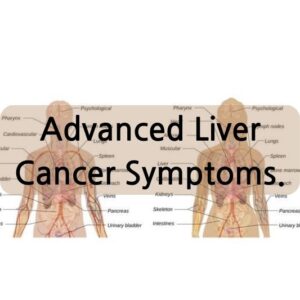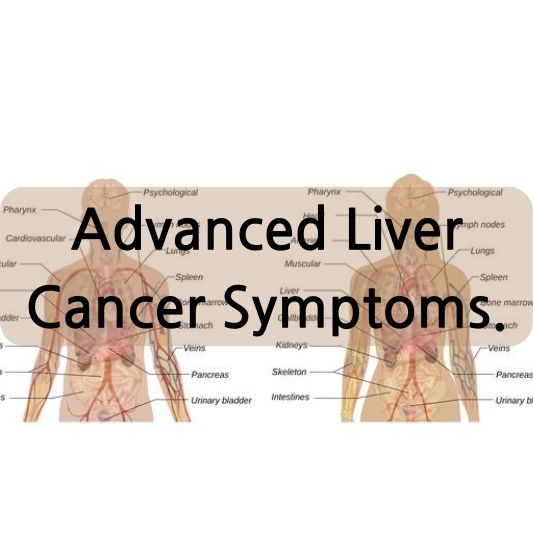Liver cancer is a serious health concern affecting millions worldwide. Understanding the symptoms, especially in advanced stages, is crucial for timely intervention. Let’s delve into the intricacies of advanced liver cancer symptoms and explore ways to navigate this challenging journey.

Understanding Liver Cancer:
Liver cancer comes in various forms, with hepatocellular carcinoma (HCC) being the most common. Chronic liver diseases, viral infections, and excessive alcohol consumption are significant contributors. It’s essential to comprehend the complexities surrounding this disease.
Early Symptoms of Liver Cancer:
In the early stages, symptoms may be subtle, making detection challenging. Recognizing signs like unexplained weight loss, fatigue, and abdominal pain is crucial for early diagnosis, significantly impacting treatment outcomes.
Progression to Advanced Stage:
Liver cancer progresses through stages, and various factors influence its advancement. Identifying these factors early on can help in developing effective intervention strategies.
Advanced Liver Cancer Symptoms:
As liver cancer advances, symptoms become more pronounced. Jaundice, abdominal swelling, and persistent pain indicate the disease’s progression. Understanding these signs is paramount for both patients and caregivers.
Diagnostic Procedures:
Confirmation of advanced liver cancer involves sophisticated diagnostic procedures. Seeking medical consultation and undergoing tests such as imaging studies and biopsies is crucial for an accurate diagnosis.
Treatment Options:
The landscape of advanced liver cancer treatment includes surgery, chemotherapy, and targeted therapies. A multidisciplinary approach involving oncologists, surgeons, and other specialists ensures comprehensive care for patients.
Patient Stories:
Real-life experiences offer insights into the challenges faced by individuals with advanced liver cancer. Sharing these stories humanizes the condition and provides a sense of community for those navigating similar journeys.
Support and Coping Strategies:
Coping with advanced liver cancer requires emotional and psychological support. Various resources and support groups exist to help patients and their families navigate the complexities of the disease.
Preventive Measures:
While there’s no foolproof way to prevent liver cancer, adopting a healthy lifestyle and regular health check-ups can reduce risk factors. Understanding the importance of prevention is vital for overall well-being.
Medical Advancements:
Ongoing research and innovations offer hope for advanced liver cancer treatment. Keeping abreast of medical advancements underscores the importance of a hopeful outlook for those affected.
Burstiness in Liver Cancer Discussions:
Liver cancer discussions can be complex, involving medical, emotional, and societal aspects. Encouraging open conversations helps break down barriers and fosters a supportive environment for those affected.
Perplexity Surrounding Liver Cancer:
The uncertainties and challenges surrounding liver cancer can be perplexing. Raising awareness and promoting education can contribute to a better understanding of the disease and its implications.
Conclusion:
In conclusion, advanced liver cancer symptoms demand attention and awareness. Timely recognition, comprehensive medical care, and emotional support are crucial elements in navigating this challenging journey. By fostering open discussions and staying informed, individuals can actively contribute to their well-being.
FAQs:
Can liver cancer be completely cured at an advanced stage?
Treatment outcomes vary, but advancements offer hope for improved prognosis.
How can one differentiate between common symptoms and those of liver cancer?
Seeking medical advice and undergoing diagnostic tests is crucial for accurate diagnosis.
What support is available for families of individuals with advanced liver cancer?
Numerous support groups and resources provide assistance and guidance.
Are there lifestyle changes that can reduce the risk of liver cancer?
Adopting a healthy lifestyle, including a balanced diet and regular exercise, can help mitigate risk factors.
What role does early detection play in the treatment of liver cancer?
Early detection allows for more effective treatment options and improved outcomes.
Find out the price of nutritional supplements to help your liver health on iHerb!
